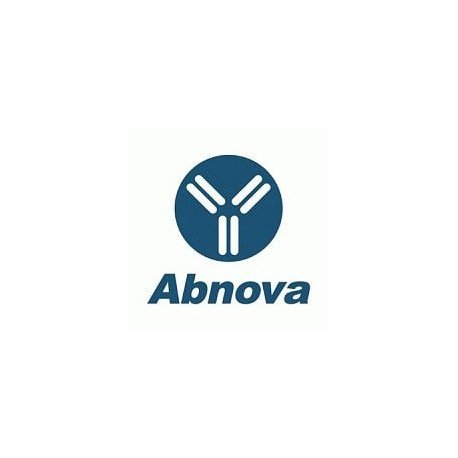Cart 0 Product Products (empty)
No products
To be determined Shipping
0,00 € Total
Prices are tax excluded
Product successfully added to your shopping cart
Quantity
Total
There are 0 items in your cart. There is 1 item in your cart.
Total products (tax excl.)
Total shipping (tax excl.) To be determined
Total (tax excl.)
Data sheet of AKAP14 polyclonal antibody
| Brand | Abnova |
| Product type | Primary antibodies |
| Reactivity | Human |
| Host species | Rabbit |
| Applications | WB-Ce,IF |
More info about AKAP14 polyclonal antibody
| Brand: | Abnova |
| Reference: | PAB17405 |
| Product name: | AKAP14 polyclonal antibody |
| Product description: | Rabbit polyclonal antibody raised against synthetic peptide of AKAP14. |
| Gene id: | 158798 |
| Gene name: | AKAP14 |
| Gene alias: | AKAP28 |
| Gene description: | A kinase (PRKA) anchor protein 14 |
| Immunogen: | A synthetic peptide corresponding to internal of human AKAP14. |
| Protein accession: | Q86UN6 |
| Form: | Liquid |
| Recommend dilutions: | Western Blot (1:500-1:1000) Immunofluorescence (1:500-1:1000) ELISA (1:5000) The optimal working dilution should be determined by the end user. |
| Storage buffer: | In PBS, pH 7.4 (150mM NaCl, 0.02% sodium azide, 50% glycerol) |
| Storage instruction: | Store at -20°C. Aliquot to avoid repeated freezing and thawing. |
| Note: | This product contains sodium azide: a POISONOUS AND HAZARDOUS SUBSTANCE which should be handled by trained staff only. |
| Product type: | Primary antibodies |
| Host species: | Rabbit |
| Antigen species / target species: | Human |
| Specificity: | This antibody detects endogenous levels of total AKAP14 protein. |
| Reactivity: | Human |
| Application image: |  |
| Application image note: | Immunofluorescence analysis of HeLa cells, using AKAP14 polyclonal antibody (Cat # PAB17405). Peptide "+" means "with peptide blocking". |
| Applications: | WB-Ce,IF |
| Shipping condition: | Dry Ice |
| Publications: | The status, quality, and expansion of the NIH full-length cDNA project: the Mammalian Gene Collection (MGC).Gerhard DS, Wagner L, Feingold EA, Shenmen CM, Grouse LH, Schuler G, Klein SL, Old S, Rasooly R, Good P, Guyer M, Peck AM, Derge JG, Lipman D, Collins FS, Jang W, Sherry S, Feolo M, Misquitta L, Lee E, Rotmistrovsky K, Greenhut SF, Schaefer CF, Buetow K, Bonner TI, Haussler D, Kent J, Kiekhaus M, Furey T, Brent M, Prange C, Schreiber K, Shapiro N, Bhat NK, Hopkins RF, Hsie F, Driscoll T, Soares MB, Casavant TL, Scheetz TE, Brown-stein MJ, Usdin TB, Toshiyuki S, Carninci P, Piao Y, Dudekula DB, K Genome Res. 2004 Oct;14(10B):2121-7. |


